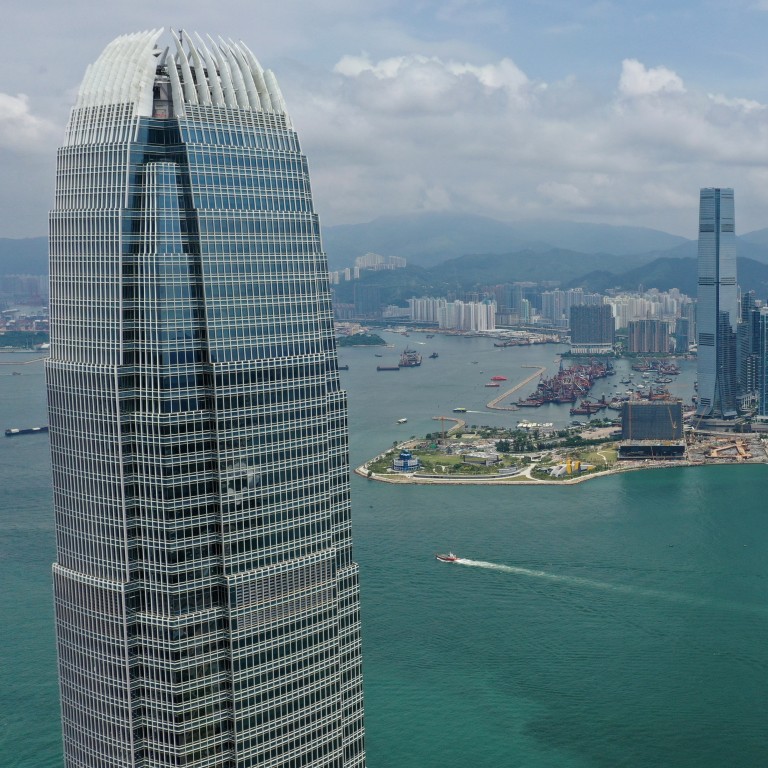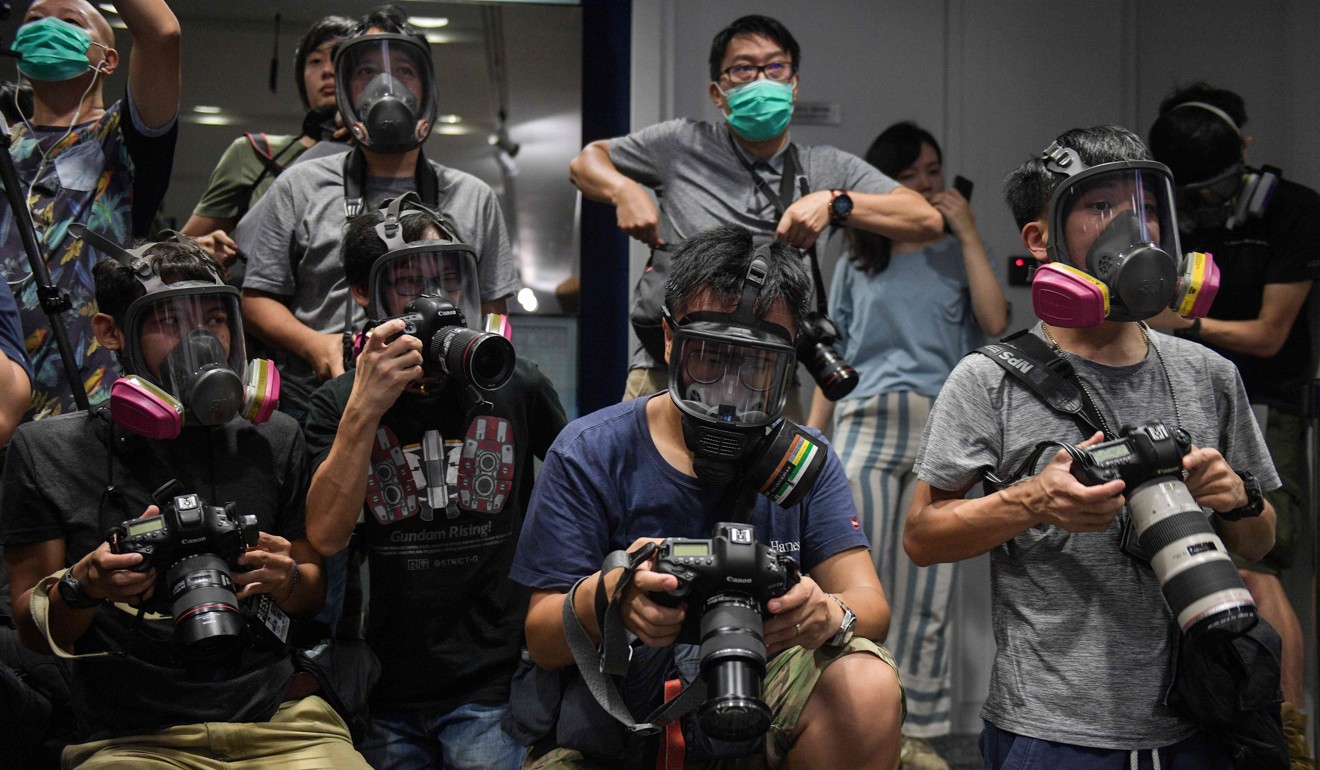
Hong Kong climbs to third in World Economic Forum’s competitiveness rankings, but judicial independence and press freedom ‘decline’
- City rises up league table, although performance based on data provided before outbreak of protests
- Report downgrades media freedom and judicial independence, but city remains a global leader in latter
Hong Kong has climbed into the top three for competitiveness in this year’s global rankings, but the independence of its judiciary and press freedom have declined, according to the World Economic Forum.
The city was up four notches from seventh in 2018 – behind Singapore and the United States – as it leapfrogged the likes of the Netherlands and Switzerland, the Geneva-based organisation revealed on Wednesday in its annual competitiveness index.
“Therefore, they do not reflect any of their potential consequences – positive or negative – on the drivers of competitiveness,” a footnote in the 2019 report said.

The 656-page study noted the city’s performance in judicial independence and its decline in press freedom, without elaborating. Hong Kong ranked eighth and 61st respectively in those areas, out of 141 economies.
“The world is at a social, environmental and economic tipping point,” the report added, referring to a lost decade for productivity enhancing measures since the onset of the global financial crisis in 2008.
“However, some of this year’s better performers appear to be benefiting from global trade tensions through trade diversion, including Singapore and Vietnam [ranked 67th], the most improved country in 2019.”
The competitiveness yardstick tracked the 141 economies that account for 99 per cent of the world’s GDP. It was based on data collected between March and July, as well as opinions from business executives sought between January and April this year.

Researchers studied 12 areas to judge the competitiveness of economies. They included performance measures relating to institutions, infrastructure, adoption of information and communications technology, health, financial systems and innovation capability.
The index placed Hong Kong in the top 10 of a record eight areas, outperforming in all areas the benchmarks of the 36 members of the Organisation for Economic Co-operation and Development (OECD).
Hong Kong’s economy lost HK$2.8 billion in ‘golden week’, experts say
Hong Kong scored full marks for macroeconomic stability, health and its financial system.
“Hong Kong’s biggest weakness is undoubtedly its limited capability to innovate. With a score of 63.4 (26th), it lags behind Singapore (13th) by 12 points,” it said.
“Another differentiating factor between the two economies is the labour market. Here (75.8, seventh overall) Hong Kong is [particularly] penalised for the lack of worker rights’ protection (10, 116th), whereas Singapore’s workers protection score is 89 (18th).”

The Hong Kong government welcomed the city’s ranking, and a spokesman said it was committed to protecting press freedom, which falls under the city’s the mini-constitution, the Basic Law, and the Hong Kong Bill of Rights Ordinance.
Citing that about 80 local newspapers and 530 periodicals are published in Hong Kong, the spokesman said it did not censor traditional media or the internet.
“We maintain an environment conducive to the operation of a free and active press,” he said. “Local and international journalists of the traditional and new media report freely in Hong Kong and rigorously perform their role as a watchdog over public affairs.”
Singapore replaces US at top of WEF competitiveness rankings
On the report’s assessment of the city’s weaknesses in innovation, the spokesman said the city scored on eight out of 10 sub-indicators, and recorded improvements under innovation capability.
“This is an indication that our efforts in promoting innovation and technology development has started to bear fruits,” he said, adding the government had committed more than HK$43 billion in developing the innovation and technology sector since 2018.
Led by Singapore, the East Asia and the Pacific region was the most competitive in the world, followed by Europe and North America, the index showed.
Singapore toppled the US to become the world’s No 1, improving on its already high base in 2018. It ranked first on infrastructure, road quality, efficiency of seaport and airport services and sea transport connectivity.
However, Singapore ranked 124th out of 141 on press freedom and lack of commitment to sustainability. The Lion City also needed to promote entrepreneurship and further improve its skills base, the report said.
China’s overall ranking remained the same at 28th. China’s performance was almost on par with OECD standards and the best among the BRICS economies including Brazil, Russia, India and South Africa.

